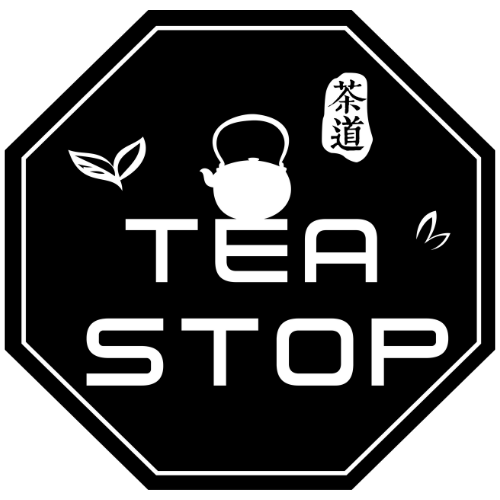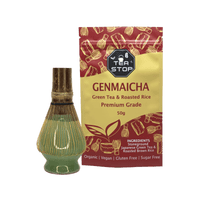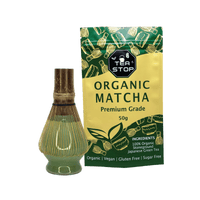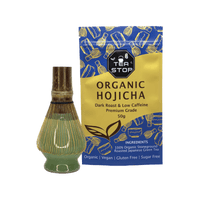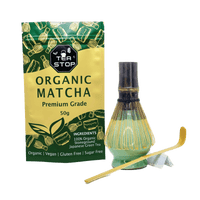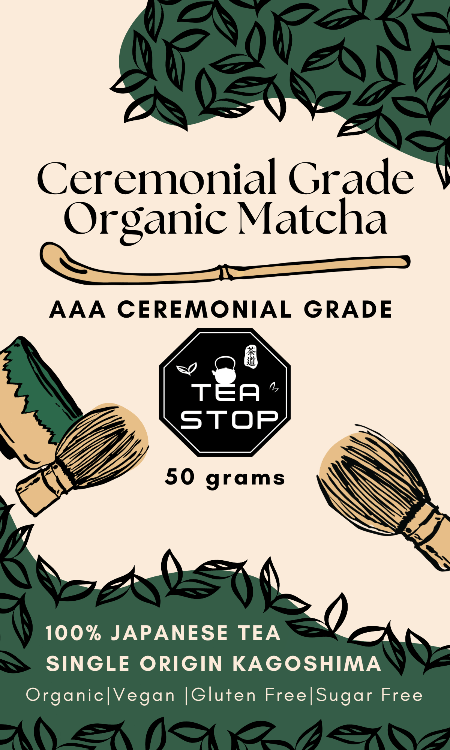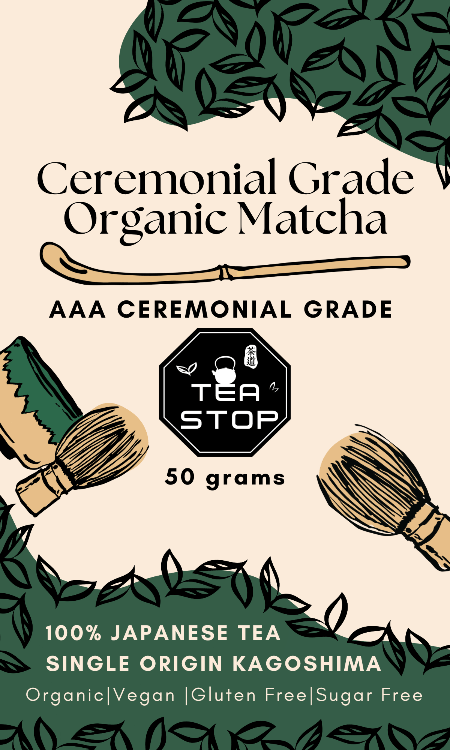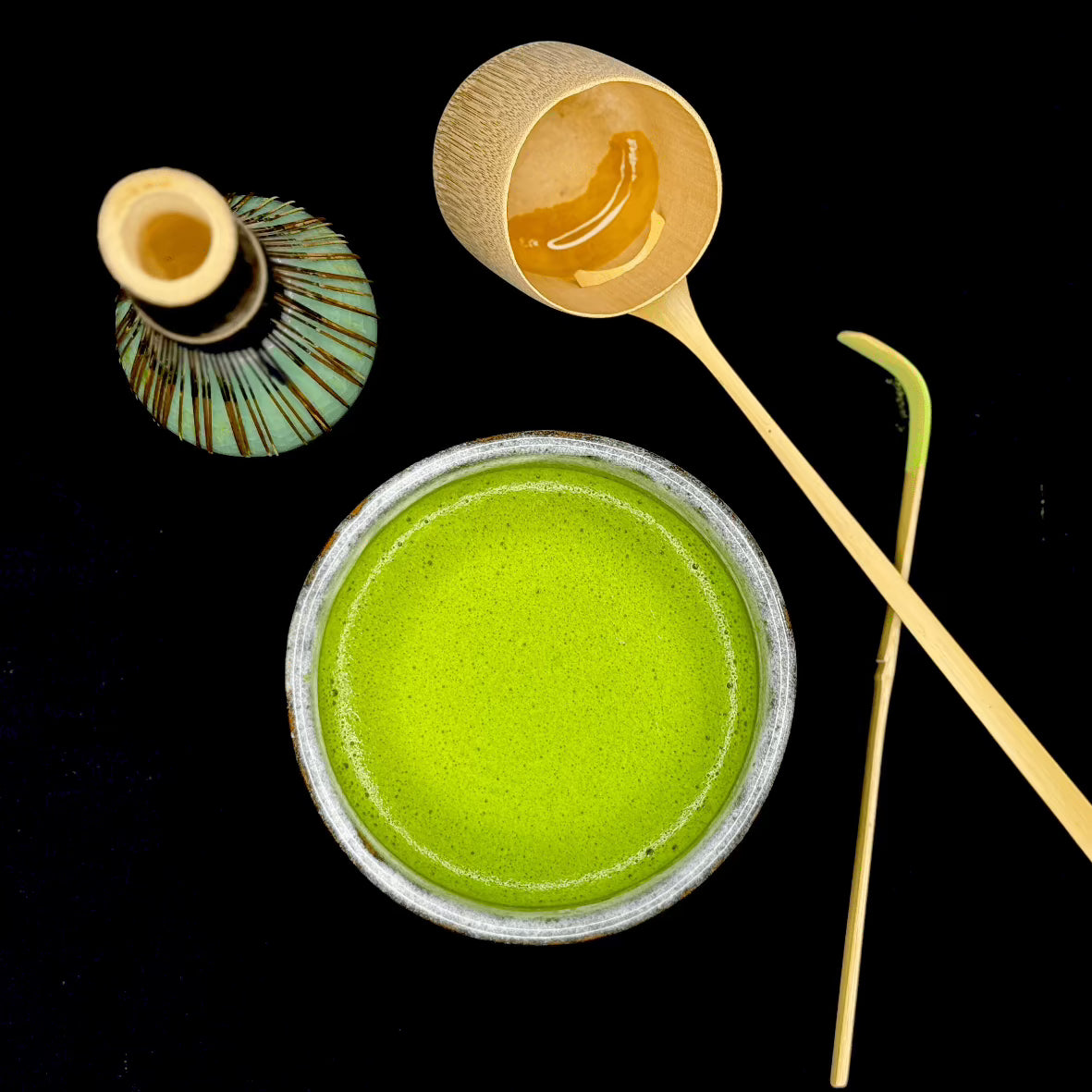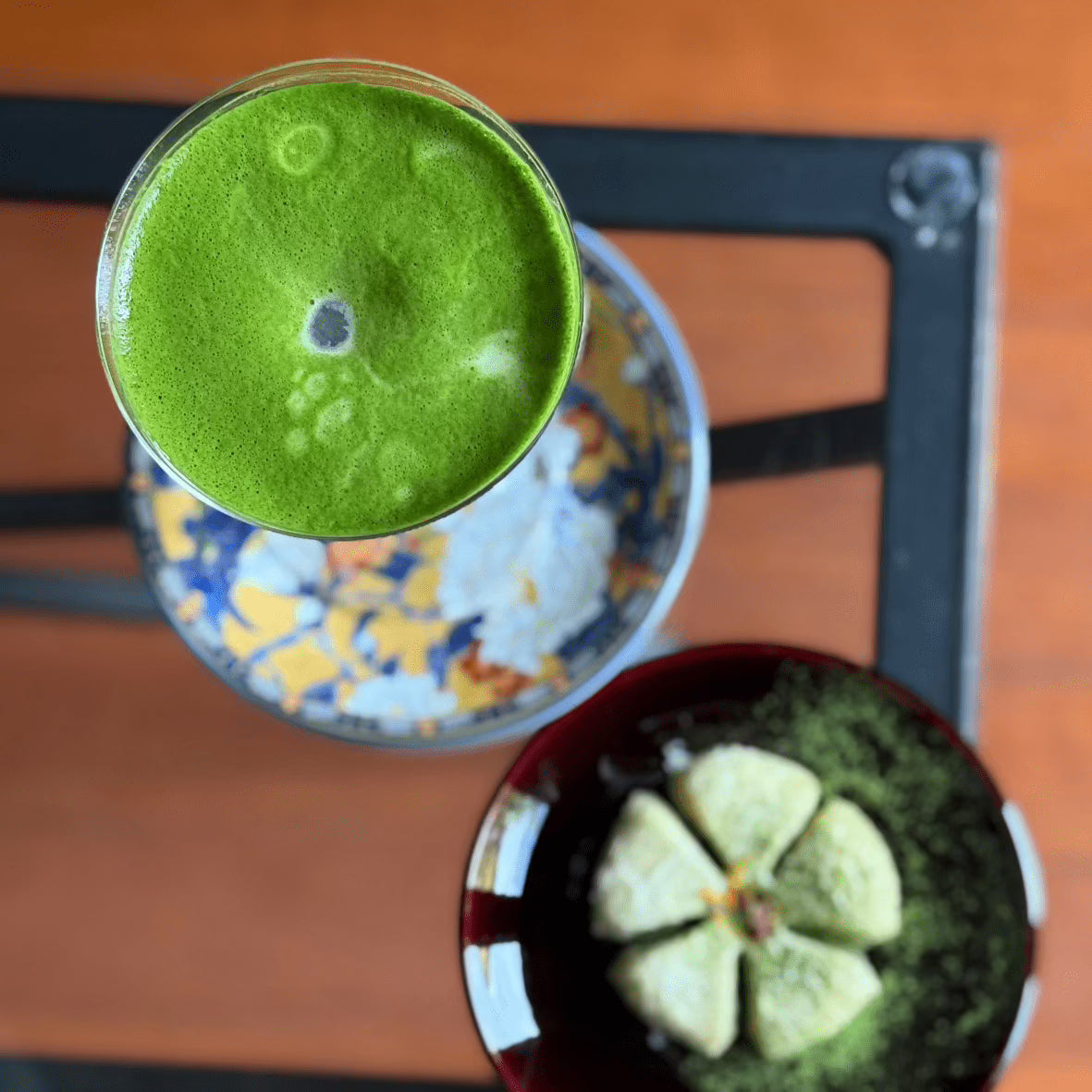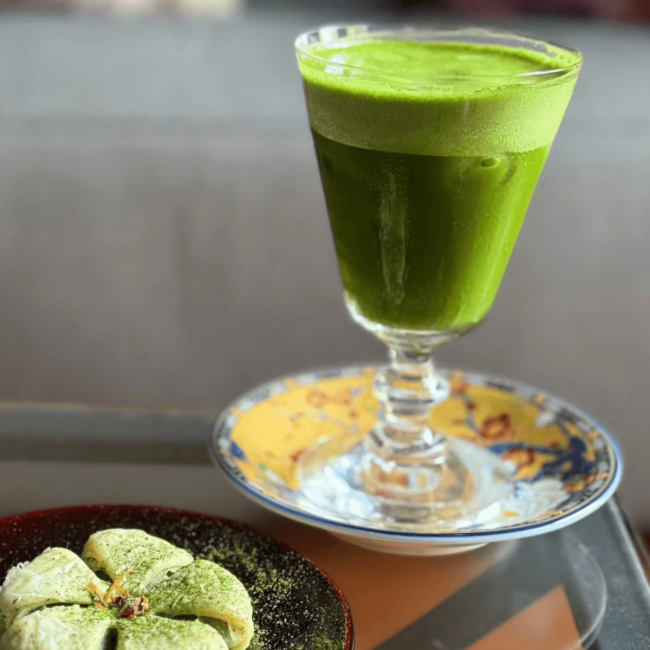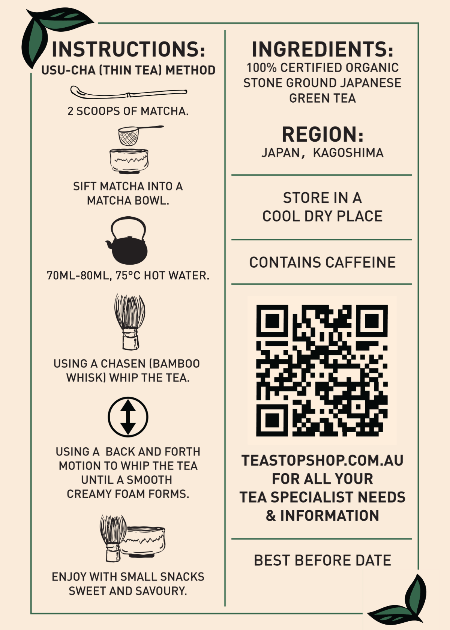
Organic Tea vs Regular Tea: Understanding the Real Differences That Matter
Share
When you're standing in the tea aisle or browsing online, the price difference between organic and regular tea might make you wonder if it's really worth the extra cost. After all, tea is just dried leaves, right? The truth is, the differences between organic and regular tea go far deeper than a certification label, affecting everything from your health to the environment to the actual taste in your cup. Studies have found that regular tea can contain residues from up to 30 different pesticides, while organic tea offers a pure, uncontaminated experience that many say tastes noticeably better. This comprehensive guide breaks down exactly what sets organic tea apart from regular tea, helping you make an informed decision about what you're putting into your body every day.

The Fundamental Differences in Growing Methods
The distinction between organic and regular tea begins long before the leaves reach your cup – it starts in the soil. Organic tea farms must maintain chemical-free soil for at least three years before earning certification, using only natural fertilizers like compost and manure. These farms work with nature's cycles, encouraging beneficial insects, maintaining biodiversity, and building healthy soil ecosystems that produce more resilient plants.
Regular tea farming, conversely, relies heavily on synthetic fertilizers, pesticides, herbicides, and fungicides to maximize yield and minimize crop loss. While this approach produces larger quantities of tea, it comes at a cost. The chemicals used don't just disappear – they remain in the soil, water, and ultimately, in the tea leaves themselves. Learn more about organic farming to see how sustainable practices create superior tea.
The impact extends beyond just the tea plants. Organic farming methods protect local water sources from chemical runoff, preserve beneficial insect populations, and maintain soil health for future generations. Workers on organic farms aren't exposed to harmful chemicals, creating safer working conditions and healthier communities around tea gardens.
Chemical Residues: What's Really in Your Cup
The Pesticide Problem in Regular Tea Recent studies have revealed concerning levels of pesticide residues in regular tea. Unlike vegetables that can be washed, tea leaves go directly from drying to your cup, meaning any chemical residues are steeped right along with the beneficial compounds. Research has detected pesticides including:
- Chlorpyrifos (linked to developmental delays in children)
- DDT (banned but still found in soil and older tea plants)
- Carbendazim (potential hormone disruptor)
- Bifenthrin (classified as possible carcinogen)
Even when residues fall below legal limits, the cumulative effect of consuming multiple pesticides daily through regular tea consumption raises health concerns, particularly for pregnant women, children, and those with compromised immune systems.
The Organic Advantage Organic tea is tested regularly for over 400 different pesticides and must show zero or only trace amounts from environmental drift. This means when you drink organic tea, you're getting the pure essence of the tea plant without the chemical cocktail.

Nutritional and Health Impact Comparison
|
Factor |
Organic Tea |
Regular Tea |
|
Antioxidant Levels |
20-30% higher EGCG content |
Standard levels |
|
Pesticide Residues |
None to trace amounts |
Up to 30 different types |
|
Heavy Metals |
Lower due to soil management |
Variable, often higher |
|
Beneficial Compounds |
Better preserved |
May be compromised |
|
Microbiome Impact |
Supports gut health |
May disrupt beneficial bacteria |
Studies consistently show that organic teas contain higher levels of beneficial polyphenols and catechins. The stress of fighting pests naturally causes organic tea plants to produce more protective compounds – the same compounds that provide health benefits to us. This natural defense mechanism results in more flavorful, nutrient-dense tea.
Taste Differences: Can You Really Tell?
Professional tea tasters and casual drinkers alike often report distinct differences between organic and regular tea. Organic teas frequently exhibit:
Cleaner Finish: Without chemical residues, the true flavor of the tea shines through More Complex Notes: Natural growing methods allow subtle flavors to develop fully Better Mouthfeel: Organic teas often feel smoother and less astringent Authentic Terroir: The true taste of the region comes through without chemical interference
In blind taste tests, experienced tea drinkers correctly identify organic tea 73% of the time, citing clarity of flavor and absence of chemical aftertaste as key indicators.
Environmental Impact: The Bigger Picture
Regular Tea Farming's Environmental Cost
- Soil depletion requiring ever-increasing chemical inputs
- Water pollution affecting entire watersheds
- Loss of biodiversity as beneficial insects disappear
- Carbon footprint from manufacturing and transporting chemicals
- Long-term land degradation making soil unsuitable for future farming
Organic Tea's Environmental Benefits
- Carbon sequestration through healthy soil management
- Protection of pollinator populations crucial for ecosystem health
- Preservation of water quality for surrounding communities
- Maintenance of biodiversity supporting ecological balance
- Sustainable land use ensuring productivity for future generations
The choice between organic and regular tea extends beyond personal health to planetary health. Each cup of organic tea supports farming practices that work with nature rather than against it.

Price Differences: Understanding the True Cost
Organic tea typically costs 20-40% more than regular tea, leading many to question whether it's worth the investment. However, consider the true cost breakdown:
Why Organic Tea Costs More:
- Lower yields due to natural pest management
- Higher labor costs for manual weeding and pest control
- Expensive certification and regular testing requirements
- Smaller scale operations with less automation
- Investment in soil health and sustainable practices
The Hidden Costs of Regular Tea:
- Healthcare costs from potential pesticide exposure
- Environmental cleanup from chemical runoff
- Loss of agricultural biodiversity
- Declining soil health requiring more inputs over time
- Health impacts on farm workers and communities
When you factor in these external costs, organic tea's price premium reflects its true value. Plus, since organic tea often has more intense flavor, you can use less per cup, partially offsetting the higher initial cost. Shop our value organic tea bundles
Certification Standards: What to Look For
Recognized Organic Certifications:
- Australian Certified Organic (ACO): Strictest standards in Australia
- USDA Organic: Internationally recognized, requires 95% organic ingredients
- EU Organic: Rigorous European standards
- JAS Organic: Japanese certification for authentic Japanese teas
These certifications require:
- No synthetic pesticides, herbicides, or fertilizers for 3+ years
- Regular soil and product testing
- Detailed record keeping and traceability
- Annual inspections and surprise audits
- Buffer zones between organic and conventional fields
Making the Switch: Transitioning to Organic Tea
Start Gradually You don't need to replace your entire tea collection overnight. Start with the teas you drink most frequently, then expand your organic selection over time.
Focus on Daily Teas First If you drink the same tea every morning, make that your first organic switch. The cumulative benefit of daily organic consumption outweighs occasional organic choices.
Consider Most Contaminated Types Studies show certain teas have higher pesticide residues. Prioritize switching these:
- Green tea (often has highest residues)
- Black tea from certain regions
- Any tea you drink multiple times daily
Find Your Favorites Organic tea offers incredible variety. Use this transition as an opportunity to explore new flavors and origins.
Common Myths About Organic vs Regular Tea
Myth 1: "Organic tea doesn't last as long" Reality: Properly stored organic tea has the same shelf life as regular tea. The absence of chemicals doesn't affect longevity.
Myth 2: "All expensive tea is organic" Reality: Price doesn't indicate organic status. Some premium regular teas cost more than organic options. Always check certification.
Myth 3: "Organic means lower quality" Reality: Organic certification is about growing methods, not quality grades. Many of the world's finest teas are organic.
Myth 4: "Washing tea leaves removes pesticides" Reality: Pesticides penetrate the leaf structure and can't be washed away. The first rinse of tea doesn't eliminate chemical residues.
Why Choose Tea Stop Shop for Organic Tea
✅ Every organic tea triple-verified through independent testing
✅ Direct relationships with certified organic farms
✅ Complete transparency with test results available
✅ Fresher tea through smaller, more frequent imports
We believe everyone deserves access to pure, uncontaminated tea. That's why we've made organic tea our specialty, offering the same variety and quality you'd find in regular tea, just without the chemicals.
Frequently Asked Questions About Organic vs Regular Tea
Is organic tea really pesticide-free?
Certified organic tea cannot be grown with synthetic pesticides. While trace amounts from environmental drift are sometimes detected, levels are negligible compared to regular tea's residue levels.
Does organic tea have more caffeine?
Caffeine levels depend on tea type and processing, not organic status. However, some studies suggest organic tea's caffeine may be more bioavailable due to absence of chemical interference.
Can I trust organic labels from all countries?
Stick to recognized certifications like ACO, USDA, EU, or JAS Organic. These require rigorous testing and maintain strict standards regardless of origin country.
Is organic tea safe for pregnancy?
Organic tea eliminates concerns about pesticide exposure during pregnancy. However, always monitor caffeine intake and consult your healthcare provider about specific teas.
Why does some organic tea taste different from what I'm used to?
You may be tasting tea's true flavor for the first time without chemical interference. Most people find they prefer the cleaner, more complex taste once they adjust.
Make the Choice That Aligns with Your Values
The difference between organic and regular tea extends far beyond a simple label. It's about choosing tea that's free from harmful chemicals, supports sustainable farming, protects the environment, and delivers superior flavor and health benefits. While organic tea may cost slightly more upfront, the investment in your health and the planet's future makes it worthwhile.
Whether you're motivated by health concerns, environmental consciousness, or simply better taste, switching to organic tea is a simple change with profound benefits. Every cup supports farmers committed to sustainable practices and reduces your exposure to potentially harmful chemicals.
